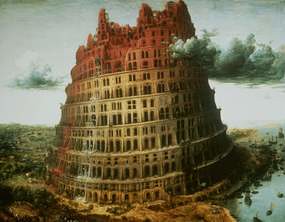
In brief how not to become food for the Somali Jackal.
The year abroad and the programmes for study exchange are becoming more and more common. However, there are some unwritten rules, which must be respected, these rules may differ from country to country. Here are some examples of what you should or shouldn’t do if you were to decide to go to Mogadishu (Somalia).
You made it finally! You convinced your Mum, packed your bags and you are ready to land in Somalia for the best year of your life (yeah right). You have just stepped out of the airport and you are waiting, impatiently, for your host. The burning African sun is making you sweat profusely. All of a sudden you see a tall, robust men walking towards you while waving desperately his hands. He is talking to you in an alien language now. He smiles and then embraces you, kissing your cheeks five, six maybe seven times. Do not worry: it is normal routine to greet a guest, now you have to do the same to him (go on do it!).
You arrived in your new home. Relax! Every thing will be fine. Unpack your bags, wash up, freshen up, change clothes, and quickly go downstairs, everybody is waiting for you. Your host with his 52 children and 4 wives, the relatives and their friends with their neighbours are all waiting for you to show up. Eventually you mange to join them, (NO!!! NO!!! DON’T DO THAT!!!) You sat down and you crossed your leg facing your foot towards your host, then you lit a cigarette and started smoking your way away while chatting up his daughter. Well done to you! You just broke the world record by becoming the fastest most unpopular person in Mogadishu and you are one step away from being taken to the local market and being sold to the worst buyer. Don’t panic! Apologise! And start making excuses, first, tell your host that you have a wooden leg because of the Gulf War, that’s why you have to sit with your legs crossed and that you never meant to insult him by showing your sole. Second, tell every-body that you have a very rare kind of asthma, which needs cigarette smoke to make you breath, now apologise again to everyone. Last but not least, tell your host that the air journey caused you a stiff-neck and you were actually talking to him and not to his daughter, erm… start crying… (Ehm… ehm… no need to be bothered anymore: you are dead now).
Don’t worry the time abroad is not always as drastic as this. Gaffes do happen. The best thing to do, however, is to learn about the culture, religion and other basic facts of that particular country. And finally, remember be ready with your excuse making expertise...
Labels: culture, gaffes, languages, Mogadishu, Somalia, study exchange, year abroad
 Lying between the Alps and the Dolomites, Lake Garda is the largest and most 'Mediterranean' of the Italian lakes. Beautiful villas and gardens line the south-western shores and semi-tropical flowers flourish in the mild climate. Vines and orchards of olive trees and lemons fringe the region and the vineyards of Bardolino and Valpolicella, amongst others, are nearby. Hydrofoil, catamaran and steamers ply the lake with possible destinations including the harbour and fortress of Peschiera, the elegant resort of Gardone Riviera with its fine villas and parks, Sirmione's meticulously made mosaics, and Gargnano del Garda.
Lying between the Alps and the Dolomites, Lake Garda is the largest and most 'Mediterranean' of the Italian lakes. Beautiful villas and gardens line the south-western shores and semi-tropical flowers flourish in the mild climate. Vines and orchards of olive trees and lemons fringe the region and the vineyards of Bardolino and Valpolicella, amongst others, are nearby. Hydrofoil, catamaran and steamers ply the lake with possible destinations including the harbour and fortress of Peschiera, the elegant resort of Gardone Riviera with its fine villas and parks, Sirmione's meticulously made mosaics, and Gargnano del Garda.





